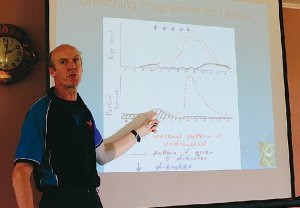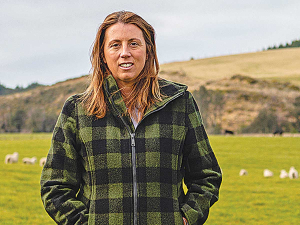That was a headline message from Northland vet Mark Anderson to a recent Beef + Lamb New Zealand Wormwise conference in Hellensville.
Worms cost sheep and beef farmers $200-$300 million/year in lost production with drenches adding $50 million/year to input costs.
Anderson says there are a large number of controls which could be better deployed and warns costs could skyrocket if there’s an over-reliance on anthelmintics.
If all roundworms on a sheep and beef farm develop immunity to all drenches then virtually overnight lambing percentage will be back 23-25% and wool production down 10-11%.
“And this is something that could really happen on some properties,” he warned.
Understanding “how worms work” helps combat the problem. Roundworms have a six stage lifecycle: adult; egg; and four larval stages only two of which are inside the sheep.
Anderson says the stages when the parasite is on pasture are the ones farmers think about least, yet this is where they have the most potential to reduce impact on stock.
Worms like warm, moist conditions and consequently tend to live at the base of plants – the same place as you’ll find facial eczema spores. The parasites are only a danger to stock when consumed in the third larval stage – eaten at any other stage of development they’re digested by stomach acids.
Preventing grazing too low with susceptible stock such as lambs will minimise the larvae eaten, and then more tolerant classes of stock, such as ewes or cattle, can be used to clean up.
“A worm isn’t going to do much damage if it’s been eaten by a ewe... And cattle worms come from a different strain to sheep worms so any sheep worm larvae that makes its way into a cow’s stomach will just be dissolved by the cow’s stomach acids.”
Avoid putting lambs back onto lambing paddocks, and try to avoid putting sheep in warm damp paddocks in autumn, he adds.
Hawkes Bay vet, Richard Lee, says try to avoid putting lambs on to new, and hence clean, pasture just after drenching.
“Lambs won’t be able to build up an immunity to the worms... All you’re going to be left with are worms that
are resistant to drench from the very beginning,” he
warns.
While Anderson admits the steps are easy for vets to talk about they are much harder to put in place and take some planning.
He recommends an annual pasture use plan is prepared and while weather rarely works in farmers’ favour, just having some form of plan in place will help. If you only think about it the day before shifting the sheep, you’re likely to find you run out of options.

















